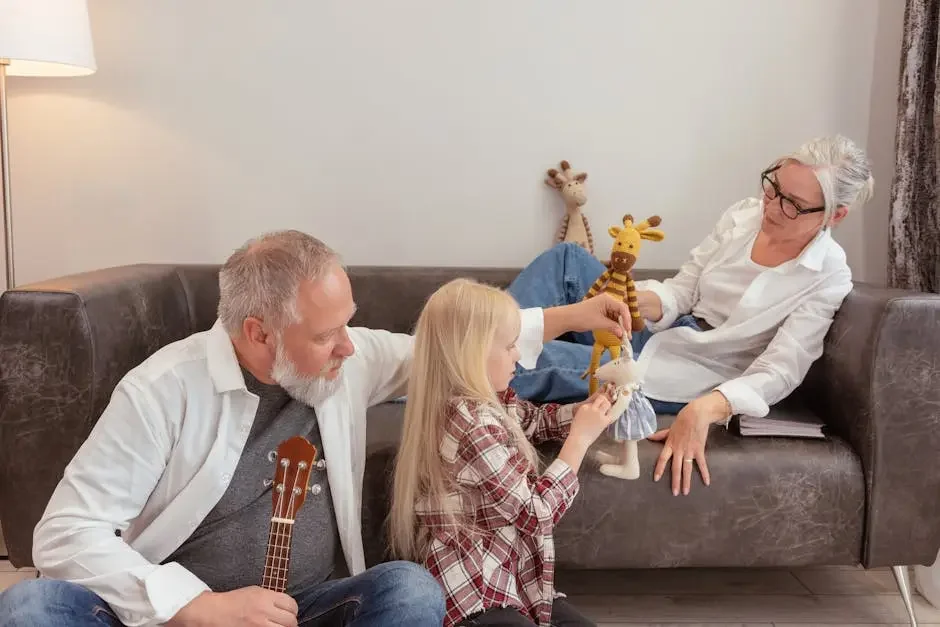7 Ways Intergenerational Trauma Affects Families Today
Intergenerational trauma is a complex and deeply rooted issue that affects countless families around the world. Passed down from one generation to the next, it can shape relationships, mental health, and the overall dynamics within a family. In this blog post, we'll explore the subtle and not-so-subtle ways intergenerational trauma manifests and influences family life today.
1. Emotional Distance and Disconnection
One of the most common effects of intergenerational trauma is emotional distance. Families may find themselves struggling to connect with each other, creating a sense of isolation among members. This emotional disconnection often stems from unaddressed emotional wounds passed down through generations. Understanding the roots of this distance requires a compassionate approach to history and past events that may still impact today’s family dynamics.
Family members might unintentionally perpetuate this disconnection by avoiding deep, meaningful conversations. In some cases, there’s a belief that discussing past traumas might open old wounds or cause additional pain, yet avoiding these conversations can exacerbate feelings of separation. Encouraging open communication and seeking professional help are critical steps in rebuilding these bonds. If you're looking to foster deeper connections, consider learning more about effective communication strategies that can bridge the gap.
2. Repeating Unhealthy Relationship Patterns
Intergenerational trauma can lead to the repetition of unhealthy relationship patterns. Individuals may unknowingly replicate the dysfunctional dynamics they witnessed or experienced in their own upbringing, perpetuating cycles of pain and conflict. For instance, a child who grew up in a household where conflict was common might struggle with conflict resolution later in life, repeating the aggressive or avoidant behaviors they observed.
Recognizing and altering these patterns is no easy feat. It often requires conscious effort and sometimes professional guidance to alter these ingrained behaviors. Individuals can work towards breaking these cycles by fostering self-awareness and understanding the core of their behavioral tendencies. Pursuing counseling services can provide a guided path towards healthier relationship dynamics.
3. Impact on Mental Health Over Time
The burden of trauma carried over generations can have a significant impact on mental health. Anxiety, depression, and other mental health issues may arise as unresolved trauma influences emotional and psychological well-being. This can manifest as chronic stress responses, where individuals may feel trapped in a hyper-vigilant state, always on edge, and anticipating danger.
Children who grow up witnessing or experiencing trauma may develop a distorted sense of safety and struggle with self-esteem issues. Acknowledging these mental health challenges is vital, and understanding their origins can help in developing effective treatment plans. To learn more about managing mental health, access a range of resources and support through our mental health services.
4. Challenges in Expressing Emotions
Families dealing with intergenerational trauma often struggle with expressing their emotions. Past traumas may lead to a fear of vulnerability or an inability to communicate feelings effectively, hindering emotional expression and understanding. Many families might operate in a "don’t talk, don’t trust, don’t feel" mode, which significantly impacts interpersonal relationships.
Learning how to express emotions in a healthy way is an essential skill that can enhance family dynamics. By practicing empathy and developing emotional literacy, families can create a more supportive environment for sharing feelings. Consider engaging in emotional expression workshops to better navigate these challenges.
5. Parenting Styles and Discipline Approaches
Trauma influences parenting styles and disciplinary practices. Parents may adopt strict, permissive, or inconsistent approaches influenced by their own experiences, which can shape their children’s development and perception of authority. A parent who experienced neglect might either replicate this approach or swing to an overly protective style, both of which can lead to complications.
These parenting styles are often unintentional but can have lasting effects on children. Providing a balanced approach that incorporates discipline with empathy can help mitigate these influences. If you're looking to enhance your parenting skills, check out our detailed guide on effective parenting techniques that support positive family dynamics.
6. Erosion of Trust and Security
Trust issues prevalent in families affected by trauma can erode a sense of security. When past traumas remain unresolved, rebuilding trust can be difficult, leading to strained relationships and a lack of confidence in familial bonds. For example, children may grow up questioning the reliability of their caregivers, which can affect their future relationships.
Restoring trust involves consistent, honest communication and a willingness to address underlying issues openly. This process can take time, and patience, but the rewards of stronger, more trusting relationships are worth the effort. To explore ways to build trust within your family, consider reading about our family counseling services to support your journey.
7. Fear of Repetition and the Unknown
For some, the fear that they will unknowingly pass down trauma to future generations is overwhelming. This fear can prevent families from addressing the root causes of their trauma, leaving them feeling trapped in a cycle they wish to break. Such fear often stems from a belief that history is destined to repeat itself if not consciously altered.
Breaking free from this fear involves understanding that while the past influences us, it does not dictate our future actions. Learning coping strategies and engaging in educational family therapy sessions can provide families with the tools they need to effectively address and heal from past traumas, ensuring a healthier environment for future generations.

